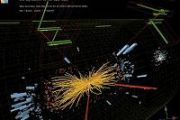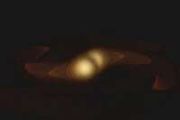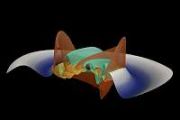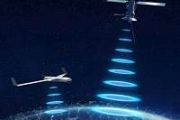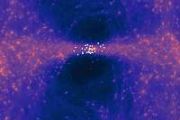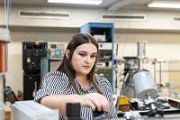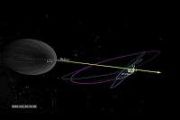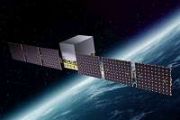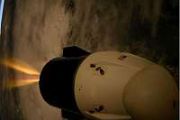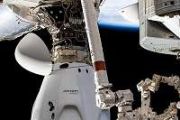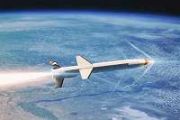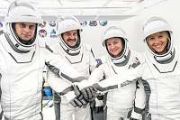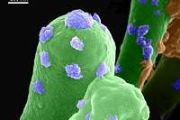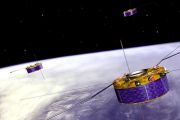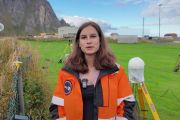
Copernical Team
Mystery investor orders life support system for private space station
 The billionaire space race formally kicked off last month after companies owned by Virgin Group CEO Richard Branson and Amazon chairman Jeff Bezos sent the men soaring to the edge of space. Critics have viciously attacked the billionaires for bringing a dystopian sci-fi vision of the future one step closer to reality.
Raytheon Technologies subsidiary Collins Aerospace has confirmed that it
The billionaire space race formally kicked off last month after companies owned by Virgin Group CEO Richard Branson and Amazon chairman Jeff Bezos sent the men soaring to the edge of space. Critics have viciously attacked the billionaires for bringing a dystopian sci-fi vision of the future one step closer to reality.
Raytheon Technologies subsidiary Collins Aerospace has confirmed that it Astra aborts small-rocket launch for Space Force from Alaska
 California-based Astra Space, a relatively new rocket company, aborted the launch of its first payload, an experiment for the U.S. Space Force, from Alaska on Friday.
The company did not explain immediately the reason for the abort at 5:45 p.m. EDT on a livestream provided by space media publication NASAspaceflight.com.
The launch window stretches to Sept. 11 at the Pacific Space
California-based Astra Space, a relatively new rocket company, aborted the launch of its first payload, an experiment for the U.S. Space Force, from Alaska on Friday.
The company did not explain immediately the reason for the abort at 5:45 p.m. EDT on a livestream provided by space media publication NASAspaceflight.com.
The launch window stretches to Sept. 11 at the Pacific Space Two experiments to help humans "go farther / stay longer" in space
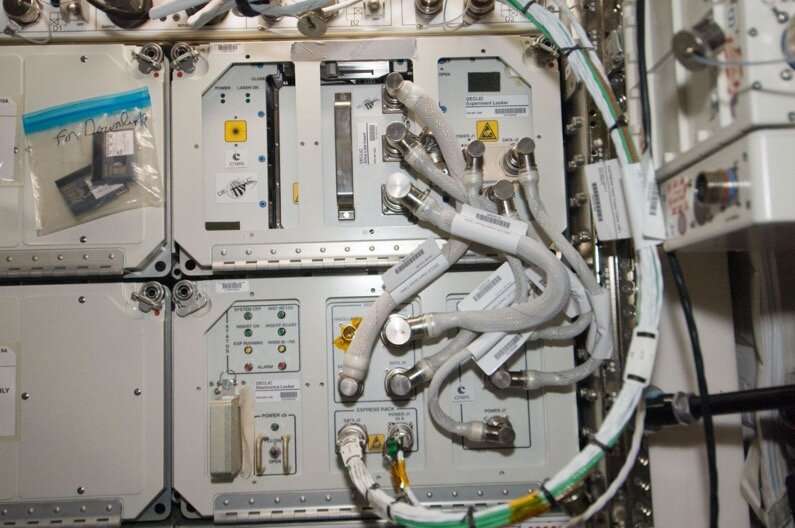
When the Space X23 rocket launches on August 28th to resupply the International Space Station, it will carry two experiments designed to sustain humans as they go farther and stay longer in deep space: A physical science investigation known as DEvice for the study of Critical Liquids and Crystallization—Directional Solidification Insert-Reflight (DSI-R), and a space biology experiment known as the Advanced Plant EXperiment-08 (APEX-08).
While DSI-R's full title may be long, its purpose is succinct: How can material scientists make metal alloys stronger, and last longer under various gravity conditions? The answer may lie in a series of computational models that researchers hope to refine as a result of this experiment. Dr. Rohit Trivedi, a senior scientist at Ames Laboratory and a professor of materials science and engineering at Iowa State University in Ames Iowa is the principal investigator: Dr. Alain Karma, a professor of physics at Boston's Northeastern University is the Co Investigator.
Join our online event: Galileo Second Generation Industry Day on 7th September
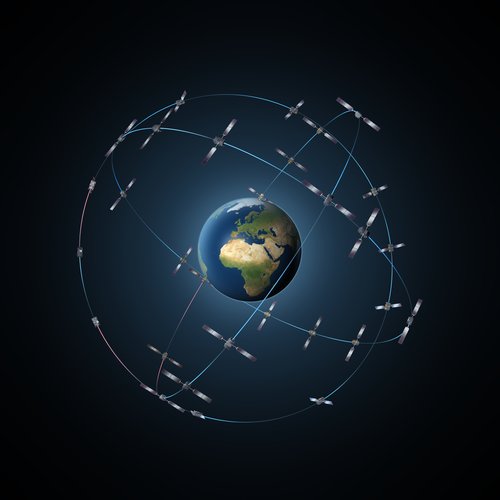
As work proceeds on Europe's Galileo Second Generation satellites, the European Space Agency is pleased to announce the Galileo Second Generation Industry Day 2021 online event on Tuesday 7 September.
Week in images: 23 - 27 August 2021
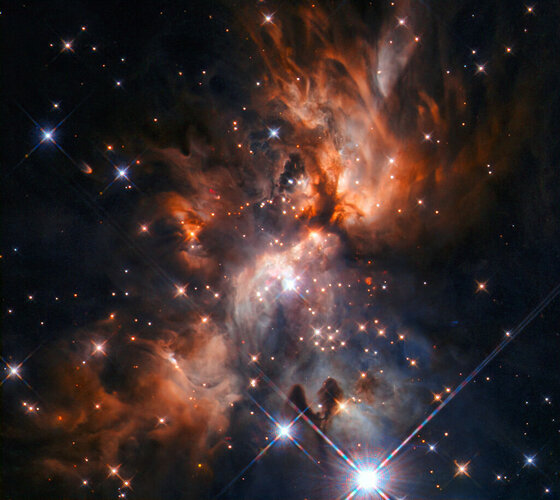
Week in images: 23 - 27 August 2021
Discover our week through the lens
Kendall, Raymond stress importance of space and Space Force's success
 Secretary of the Air Force Frank Kendall offered unambiguous support Aug. 24 for the still evolving U.S. Space Force, noting the critical role space plays in the nation's security, the essential functions space enables in everyday life, and why access must be assured as space becomes more congested and contested.
"It is impossible to overstate the importance of space-based systems to natio
Secretary of the Air Force Frank Kendall offered unambiguous support Aug. 24 for the still evolving U.S. Space Force, noting the critical role space plays in the nation's security, the essential functions space enables in everyday life, and why access must be assured as space becomes more congested and contested.
"It is impossible to overstate the importance of space-based systems to natio Satellite built by UMass Lowell students headed to the International Space Station
 It's all systems go for SPACE HAUC, a miniature satellite designed and built by UMass Lowell students for NASA, which plans to send it to the International Space Station on Saturday for launch into the Earth's orbit this fall.
Funded by a $200,000 grant from the space agency, the satellite was designed, built and managed by more than 100 students from UMass Lowell's Francis College of Engi
It's all systems go for SPACE HAUC, a miniature satellite designed and built by UMass Lowell students for NASA, which plans to send it to the International Space Station on Saturday for launch into the Earth's orbit this fall.
Funded by a $200,000 grant from the space agency, the satellite was designed, built and managed by more than 100 students from UMass Lowell's Francis College of Engi Space science project funding available for UK space projects
 The joint funding call, which opens today from the UK Space Agency and Science and Technology Facilities Council (STFC), will facilitate and encourage collaboration between industry and academia, and support new entrants to the space sector.
The 375,000 pounds Technology for Space Science fund will boost technology that will support the exploration of our universe through space-based astro
The joint funding call, which opens today from the UK Space Agency and Science and Technology Facilities Council (STFC), will facilitate and encourage collaboration between industry and academia, and support new entrants to the space sector.
The 375,000 pounds Technology for Space Science fund will boost technology that will support the exploration of our universe through space-based astro James Webb Space Telescope has completed testing
 After successful completion of its final tests, NASA's James Webb Space Telescope is being prepped for shipment to its launch site.
Engineering teams have completed Webb's long-spanning comprehensive testing regimen at Northrop Grumman's facilities. Webb's many tests and checkpoints were designed to ensure that the world's most complex space science observatory will operate as designed onc
After successful completion of its final tests, NASA's James Webb Space Telescope is being prepped for shipment to its launch site.
Engineering teams have completed Webb's long-spanning comprehensive testing regimen at Northrop Grumman's facilities. Webb's many tests and checkpoints were designed to ensure that the world's most complex space science observatory will operate as designed onc New class of habitable exoplanets are 'a big step forward' in the search for life
 A new class of exoplanet very different to our own, but which could support life, has been identified by astronomers, which could greatly accelerate the search for life outside our Solar System.
In the search for life elsewhere, astronomers have mostly looked for planets of a similar size, mass, temperature and atmospheric composition to Earth. However, astronomers from the University of C
A new class of exoplanet very different to our own, but which could support life, has been identified by astronomers, which could greatly accelerate the search for life outside our Solar System.
In the search for life elsewhere, astronomers have mostly looked for planets of a similar size, mass, temperature and atmospheric composition to Earth. However, astronomers from the University of C 






